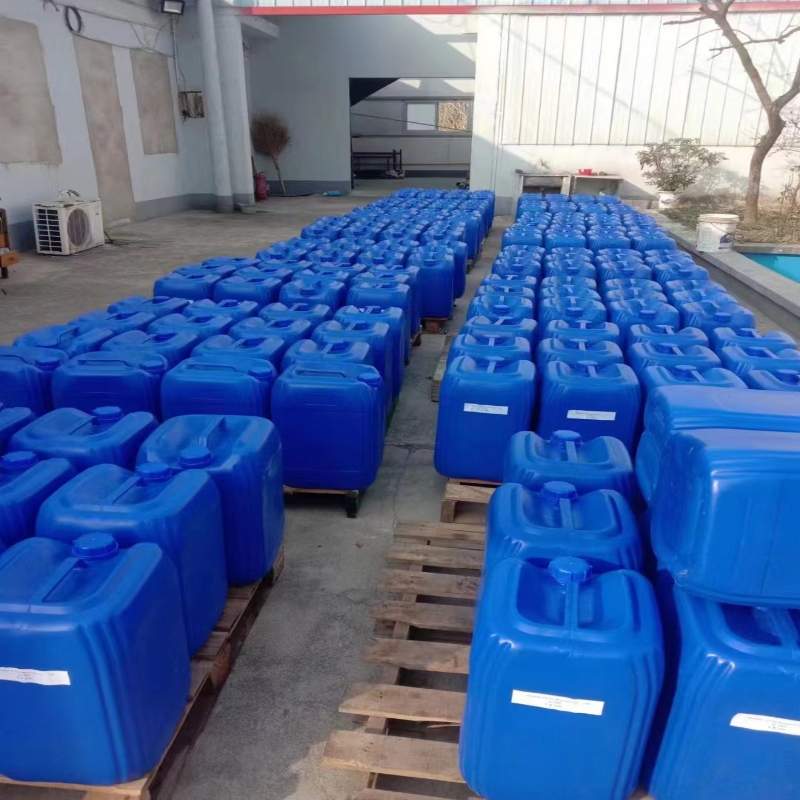-
Categories
-
Pharmaceutical Intermediates
-
Active Pharmaceutical Ingredients
-
Food Additives
- Industrial Coatings
- Agrochemicals
- Dyes and Pigments
- Surfactant
- Flavors and Fragrances
- Chemical Reagents
- Catalyst and Auxiliary
- Natural Products
- Inorganic Chemistry
-
Organic Chemistry
-
Biochemical Engineering
- Analytical Chemistry
-
Cosmetic Ingredient
- Water Treatment Chemical
-
Pharmaceutical Intermediates
Promotion
ECHEMI Mall
Wholesale
Weekly Price
Exhibition
News
-
Trade Service
Following the Federal Reserve, central banks such as Switzerland and the United Kingdom have raised interest rates, highlighting concerns caused by rising inflationary pressures, while energy prices have collectively closed higher
after the United States announced new economic sanctions against Iran.
July futures for West Texas Intermediate crude rose $2.
27, or 2 percent, to settle at $117.
58 a barrel on the New York Mercantile Exchange, rebounding
from a 3 percent drop on Wednesday.
ICE Futures Exchange Brent crude oil futures for August rose $1.
30, or 1.
1 percent
, to $119.
81 a barrel.
Under the near-month contract, Brent crude and West Texas Intermediate both closed near
their lowest levels in two weeks on Wednesday.
July gasoline futures rose 1.
6 percent to $3.
9554 a gallon on the New York Mercantile Exchange, and July heating oil rose nearly 0.
6 percent to $
4.
5719 a gallon.
Natural gas rose 0.
6% to $
7,464 per million UK calories in July.
At the same time, the visit of European leaders to Ukraine could also support oil prices, as it indicates the possibility of imposing more sanctions
on Russia's energy sector.
Taylor Ritchie, co-editor of Sevens Report Research, said oil prices bottomed out
on Thursday after news of the United States imposing "new economic sanctions on Iran to force the oil-producing country back into the nuclear deal.
"
The U.
S.
Treasury Department said Thursday it sanctioned a network of Iranian petrochemical producers as well as "front companies" in the United Arab Emirates that support companies
it says sell Iranian petrochemicals abroad.
Meanwhile, Troy Vincent, a senior market analyst at DTN, said Thursday's oil deal was boosted as a visit by European leaders to Ukraine was interpreted as bullish oil
.
This is likely to indicate that the EU will impose a new round of sanctions on Russia and continue to put pressure
on Russia's oil trade.
U.
S.
and global benchmarks opened lower on Thursday as stocks and other assets deemed riskier moved lower
.
Crude oil prices closed at a two-week low after the Federal Reserve announced a 75 basis point rate hike on Wednesday, but stocks initially rebounded
after the decision to raise rates.
Ritchie said the energy market has been volatile in recent sessions as the Fed "sharply raised interest rates, heightened concerns about the global economy and subsequent demand forecasts, and increased domestic production combined to trigger a wave
of profit-taking after the latest oil price rally.
" "Despite this, the dominant trend in the market remains bullish
.
" Because the geopolitical concerns raised by the war in Ukraine outweigh the few fundamental headwinds currently facing energy (including new sanctions on Iran
).
”
DTN's Vincent said the Fed's decision to accelerate rate hikes was both an acknowledgement of the Fed's overly optimistic about the inflation outlook and a growing scepticism about the Fed's view
of the economic growth outlook.
"It is this increased likelihood of bringing the end of the business cycle forward and the next recession that worries the oil market, as it will lead to a decline in
oil demand.
"
The Swiss National Bank also raised its benchmark interest rate by 0.
5 basis points to -0.
25%, while the Bank of England raised its benchmark rate by 25 basis points
on Thursday.
However, Vincent said the Fed's decision was unlikely to be the main reason for
the decline in oil prices this week.
WTI crude futures are down more than 2% so far this week, while Brent crude is down more than 1%.
For oil market participants, continued strong Russian oil supplies and weak U.
S.
gasoline and distillate fuel oil demand at record high oil prices are "more important"
than higher-than-usual rate hikes in the federal funds rate.
On Thursday, the U.
S.
Energy Information Administration reported that domestic natural gas supplies increased by 92 billion cubic feet
in the week ending June 10.
And S&;; Analysts surveyed by PGlobal Commodity Insights predict an average increase of 89 billion cubic feet
.
The EIA said working natural gas reserves include revisions to "reflect data resubmitted during the three-week period from May 20, 2022 to June 3, 2022.
"
Operating gas is the amount of
gas available on the market.
The total working natural gas reserves stored are 2.
095 trillion cubic feet
.







